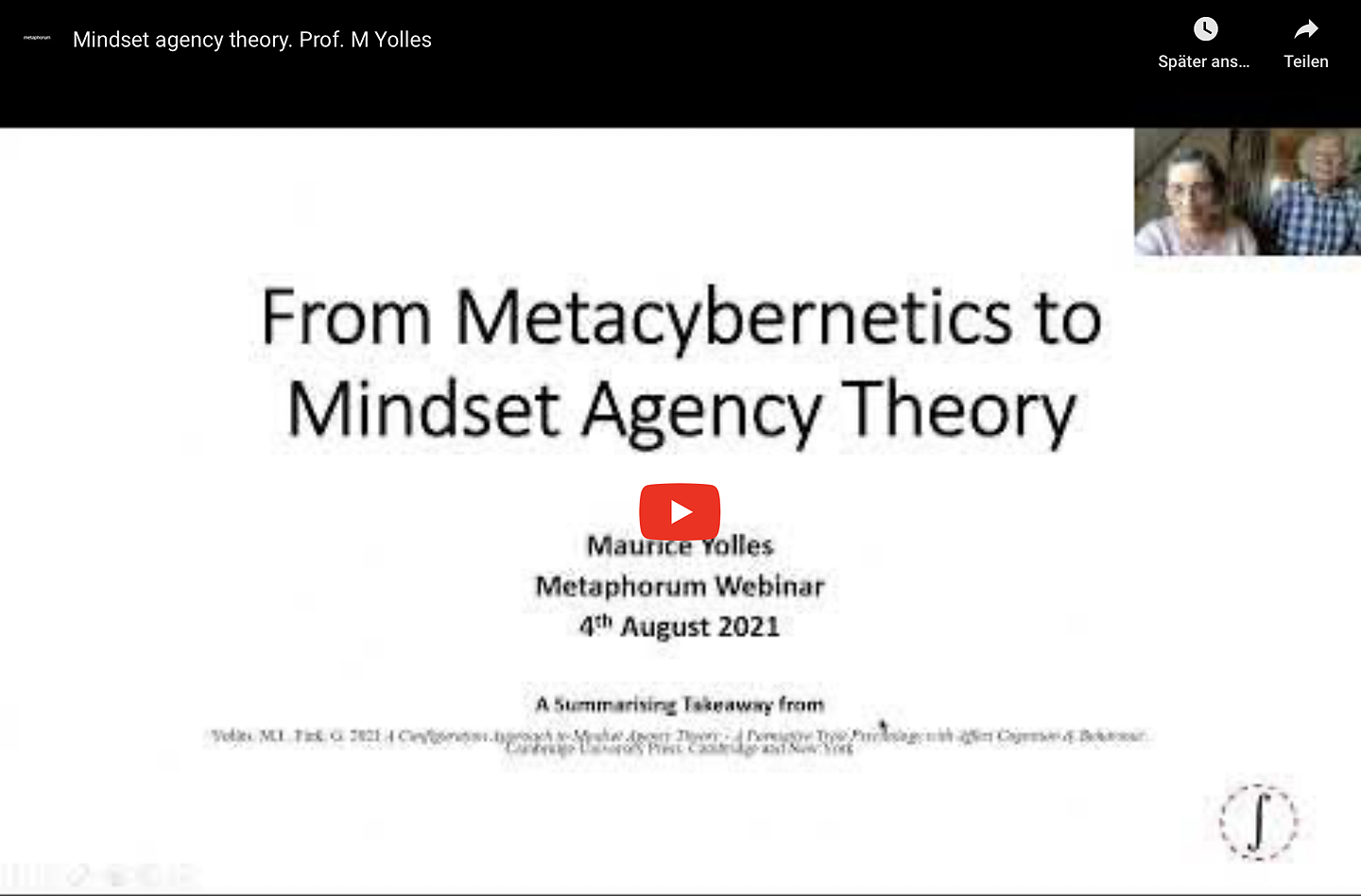
Prof Yolles will offer a takeaway from his recent book (with M.I.Fink), with emphasis in Social Agency in Organisational Cybernetics.
The book explains psychological, socio-political and organisational change in multidisciplinary settings. It shows how advanced techniques of contextual analysis can be applied to complex situations and offers a new cybernetic agency paradigm based on living systems theory. It models, diagnoses and analyses complex, real-world situations to anticipate patterns of behaviour.
Speaker Bio

Maurice Yolles is a retired Professor in Management Systems at Liverpool John Moores University, United Kingdom, specialised in social cybernetics. He also headed the Centre for the Creation of Coherent Change and Knowledge.
[M.I. Fink is retired professor of international business at Vienna University of Economics and Business, and ex-director of the Research Institute for European Affairs and of doctoral programs in business.]
